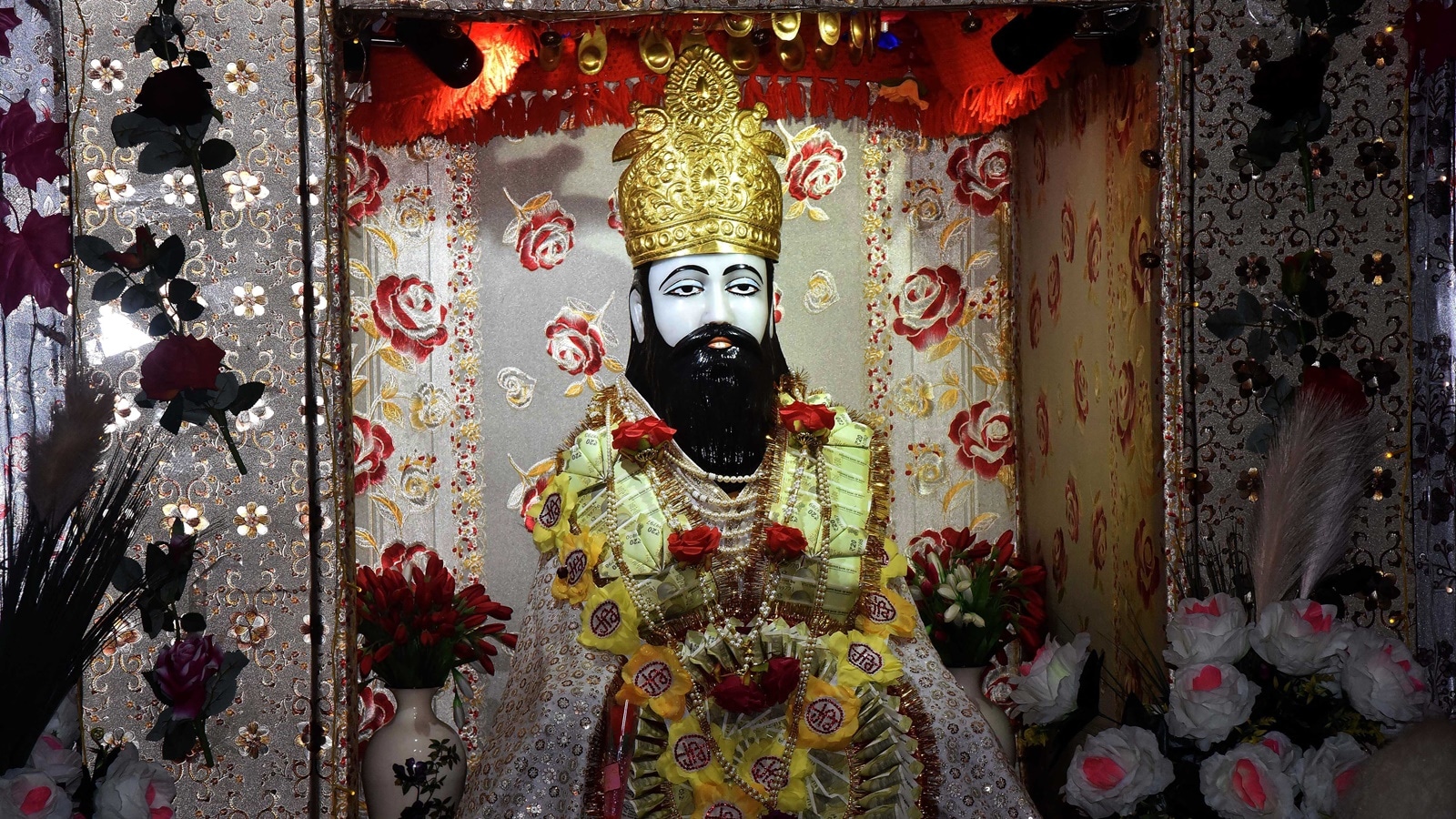 |
|
The declaration of Sant Ravidas's birth anniversary as a public holiday highlights the growing recognition of his social justice legacy. Ravidas, a 14th-century poet from the chamar caste, championed equality and dignity in a deeply stratified society. His concept of Begumpura, a city without sorrow, prefigured modern socialist ideals long before the rise of Marxism. This utopian vision, detailed in his poetry, depicts a society where everyone is equal, everyone is fed, and suffering is absent. His verses emphasize the importance of simple living, compassion for others, and the inherent sin of subjugation. The concept of Begumpura is not merely a spiritual ideal; it presents a tangible alternative to the realities of caste-based oppression and economic inequality.
Ravidas's influence extends to prominent figures in the struggle for social justice. B.R. Ambedkar, architect of the Indian Constitution, found resonance in Ravidas's vision of an egalitarian society. Ambedkar's own pursuit of social democracy, emphasizing liberty, equality, and fraternity, echoes Ravidas's Begumpura. He dedicated his book The Untouchables to Ravidas, recognizing the shared fight against caste oppression. Kanshi Ram, founder of the Bahujan Samaj Party (BSP), also drew inspiration from Ravidas. Hailing from the same cobbler caste and deeply rooted in Uttar Pradesh, Kanshi Ram focused on economic justice and proportional representation for marginalized communities. His slogans, advocating for political representation and land rights, reflect the practical application of Ravidas's ideals in the political sphere. The renovation of Ravidas's temple further underscores the significance of the Sant's legacy within the BSP's political agenda.
The enduring relevance of Ravidas's teachings in contemporary India cannot be overstated. In a society still grappling with caste discrimination and economic disparities, Begumpura serves as a powerful counter-narrative. It offers an alternative vision, a space of emancipation for the marginalized, challenging the pervasive inequalities and injustices that persist. The ongoing struggle for social justice, for a society where everyone has equal opportunities and dignity, finds a powerful ally in the enduring wisdom of Sant Ravidas. His simple yet profound message of compassion, equality, and the condemnation of subjugation remains a vital call to action, reminding us of the urgent need for social transformation and the lasting importance of pursuing a more just and equitable society. The ongoing political discourse surrounding the recognition of Ravidas's legacy demonstrates the continued power of his ideas to inspire and mobilize efforts for social change.
The parallel drawn between Ravidas's vision and Marx's socialist ideals highlights the universality of the desire for a just society, free from exploitation. While Marx focused on class struggle and capitalism as the primary oppressors, Ravidas identified the caste system as the root of inequality. However, both sought to create societies where individuals are not defined by their social standing or economic status, but are treated with equal dignity and respect. The differences in context and focus, rather than diminishing their significance, underscore the multiple ways in which injustice manifests itself and the diverse approaches necessary to challenge and overcome it. The enduring appeal of both Ravidas and Marx lies in their unwavering commitment to the creation of a better future for humanity, free from the shackles of oppression and inequality.
In conclusion, the celebration of Sant Ravidas's birth anniversary is not merely a religious observance, but a potent symbol of the ongoing struggle for social justice in India. His vision of Begumpura, a utopian society free from suffering and inequality, continues to inspire movements for social reform and equality. The legacies of Ambedkar and Kanshi Ram, deeply rooted in Ravidas's teachings, demonstrate the transformative power of his ideals. As long as caste-based discrimination and economic disparities persist in India, the message of Sant Ravidas will remain profoundly relevant and essential.
